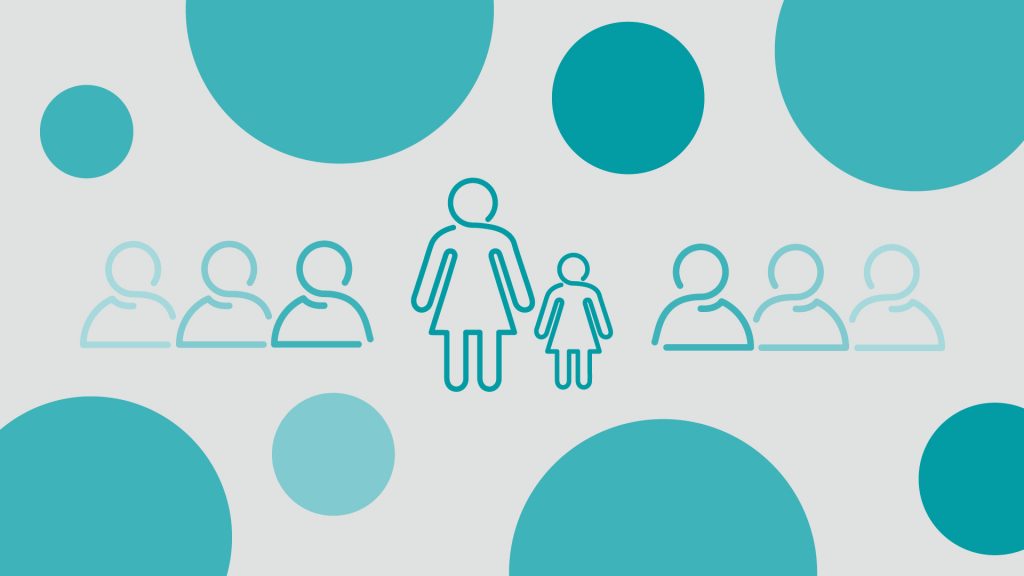Supporting children through the COVID-19 pandemic

Our institution has been open and committed to supporting the wellbeing of its staff throughout the COVID-19 pandemic.
However, Maia, the University’s Women’s Network, has recently hosted virtual ‘Connect over Coffee’ chats, which have highlighted how many staff are worried about the mental wellbeing of their children.
In this blog, Dr Gemma Witcomb takes a look at some of the concerns raised and offers some advice on how we can best support children at this time, drawing on research expertise of colleagues in the School of Sport, Exercise and Health Sciences.
The COVID-19 pandemic and resulting lockdown has caused an unprecedented change to everyday life. This change is particularly challenging for those with parental responsibilities.
Many of the narratives of the difficulties faced by parents specifically have focused on the challenges of attempting to do two jobs simultaneously: working from home and caring for children.
Such challenges have been witnessed by many – from unexpected little guests on Zoom calls with colleagues, to accidental Teams calls to School and Admissions staff (sorry!), to national news interviews that have featured children interrupting their parents with their burning questions or requests. While on the surface these may be rather amusing incidents, they highlight the inescapable overlap between work and family; something that is uncomfortable for both parents and their children.
As expected, anxiety – a natural reaction to an invisible, uncontrollable threat – has soared. But wellbeing has also been affected by the specific precautions necessary to control the virus, which in an unfortunate coincidence target the known major risk factors for poor wellbeing: access to outside spaces, opportunity for physical activity, and interactions with supportive family, friends, and others.
Commonly, parents are not a significantly vulnerable group (with appropriate exceptions) and single parents living alone with children may not typically be at risk, but the effects of lockdown on social isolation and connectedness may exacerbate the development of poor wellbeing.
Since caring responsibilities remain predominately the burden of women, women (and those they care for) are likely to be disproportionately affected. Decades of research has shown that children’s mental wellbeing is closely linked to that of their parent(s) and so it is important that we safeguard parents’ wellbeing at this time.
But it is important to remember that children are living through this too. Their worlds have also been turned upside down and many parents are concerned about their children’s wellbeing.
Below are a few of the common concerns raised and some tips on how to approach them.
- My child is really worried about the virus.
Talk to them. It is really important to have age-appropriate honest and open conversations with your child(ren). You may instinctively feel that you want to shield them from any information that you feel will worry them but dismissing their concerns do not make them go away. Rather, they will continue to grow and may be fuelled by false information. Talking to your child and engaging with their fears allows you to address their anxieties and can help children gain a better understanding of the situation. Talking – both by instigating conversations with your child and being receptive to conversations instigated by your child, is a crucial part of supporting their wellbeing.
- My child is having difficulties sleeping.
Anxiety in children can be experienced in a number of ways, including increased restlessness, tummy aches, and difficulties sleeping. These effects are due to quite clever physiological processes that are there to protect us. In the case of sleep, if we perceive a threat it makes sense that our brains will stay alert when they should be sleeping, so that we can respond quickly if we need to. Children may not be aware that they are feeling anxious and may be unable to associate their physiological feelings with their thoughts, so it is important to try to help manage their possible anxiety for them.
Dr Iuliana Hartescu stresses the importance of “a predictable sleep time routine, to mentally unwind and prepare children for sleep”. Weighted blankets, which work by providing deep pressure to calm the nervous system and have been used widely in the treatment of conditions such as ASD, ADHD and anxiety for years, are growing in mainstream popularity too. Research suggests that they can calm and improve the sleep of individuals suffering from insomnia and may help with anxiety. While these are available for children, always check with your GP before using a weighted-blanket for your child.
- I am finding it difficult to manage my child’s time and schoolwork while I am working.
Be kind to yourself, and your child. We are not home-schooling our children. Home-schooling parents do not have jobs that they are simultaneously trying to do. Nor do they follow the same curriculums, in the same way, that mainstream schools do. So the strange set of circumstances that we find ourselves in – working at home, “role-playing” a teacher (in my case for Years 4, 5, 6 and 7 – ouch!), with tasks often unconducive to a traditional home-school education – is going to be tough.
Maintaining a routine and focusing on activities that promote wellbeing is the most important, incorporating key skills if possible and feeding children’s natural curiosity. Play, and especially play in nature, is fundamental not only for young children’s learning but also for their mental health and wellbeing. Research has shown how the natural environment serves to improve mental wellbeing and work led by Dr Janine Coates relating to Forest School has demonstrated the power of the natural environment as a remedy for the stresses some children experience.
- We have no routine anymore.
Children really like structure and routine, even if they may object to getting out of bed early! One of the easiest ways to build in structure and routine, especially in lockdown, is around mealtimes. A recent report by BiteBack2030 found that 60% of teenagers (14-19 years of age) thought that family meals were good for health and wellbeing and wanted this to continue after lockdown.
Dr Hannah White’s own research supports this, showing that having more frequent family meals for both adolescent girls and boys is linked with lower levels of depression. Therefore, trying to ensure meals are eaten together can help restore routine that has a positive influence on children’s wellbeing. It may also provide more natural opportunities to talk about fears and worries.
- My child is spending a lot of time online and on devices.
We are all spending a lot more time in front of screens and children are no exception. Without devices, many children would be totally cut off from friends and extended family and would be losing out on much needed social connectedness and social support. Indeed, many young people play online with their real-life friends and maintaining this connection is vitally important, especially during adolescence – a critical period in identity development. Loneliness during COVID-19 poses a significant risk factor for poor mental wellbeing in this age group and so being supportive of online interactions may be helpful. However, as with everything, moderation is key. Providing attractive alternatives is important now more than ever.
‘Kids FIRST’, a recent pilot randomised controlled study led by Dr Natalie Pearson and colleagues in SSEHS, found evidence to suggest that, for younger children, having non-screen activities available and accessible can help to reduce screen time. School-age children enjoyed having an activity jar which was filled with suggestions for various activities such as reading a book, playing football, going for a walk, craft activities or baking cakes. Activities could be written on bits of paper, lolly sticks or cocktail-stick flags and put into the jar for children to select from. However they’re presented, the evidence suggests that this can help children to engage in a variety of activities rather than resorting to having their eyes glued to a screen.
- I am worried that my child is not coping at all.
For some children, increased anxiety can instigate the use of more extreme coping strategies, such as tightly controlling their eating behaviours, compulsive exercise, or engaging in self-harm. While this may be extremely alarming for parents, it is important to avoid attempting to stop the behaviour through anger, threats, or coercion, as this rarely works. Rather, seek help from your GP as soon as possible.
Useful resources:
- Barnardos have some useful tips for helping young children cope with anxiety, including breathing exercises and grounding exercises.
- Headspace also has a mindfulness app for older children that can help them manage their feelings.
- For eating concerns, please visit BEAT.

Health and Wellbeing
Wellbeing means being in a positive physical, social and mental state. Wellbeing is important to us as happy, healthy people who achieve harmony in their work / life mix are more creative, productive and help to create a great place to work.